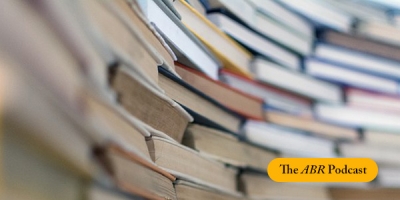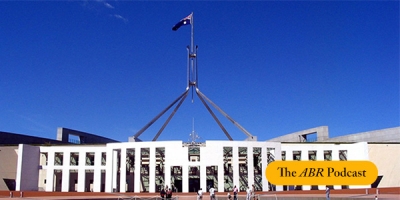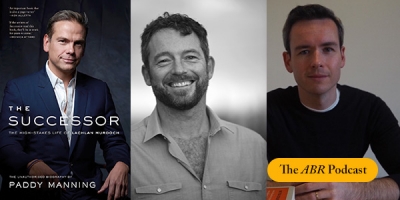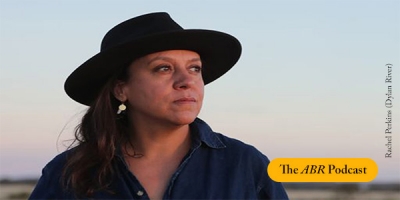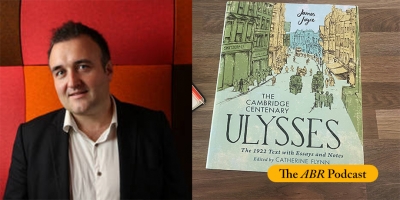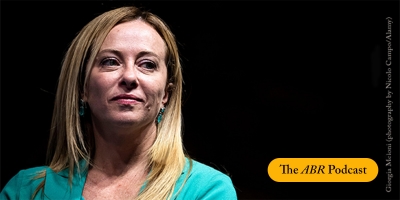Australian Book Review
This week’s episode of the ABR podcast is devoted to the Books of the Year. With ABR Editor Peter Rose, critic and writer Beejay Silcox and historian Frank Bongiorno discuss the books that stirred them most in 2022. This follows a Books of the Year feature in the December issue of ABR, with contributions from thirty-six writers and critics. Listen to Peter Rose, Beejay Silcox and Frank Bongiorno discuss the best books of 2022.
... (read more)Unlike in the United States and several other Western nations, Australian governments are under no compulsion to consult parliament before sending troops to war. In Subimperial Power: Australian in the international arena, Clinton Fernandes argues that this reflects, and furthers, Australia’s longstanding ambition in foreign affairs, which is to demonstrate its usefulness to the United States. In this week’s ABR Podcast, Kevin Foster, an academic at Monash University who has published widely on war in the Australian media, reviews Subimperial Power.
... (read more)Lachlan Murdoch will almost certainly be the next head of News Corp, one of the world’s largest media companies and the dominant force in Australia’s media landscape. In this week’s ABR Podcast, Patrick Mullins, visiting fellow at the ANU’s National Centre of Biography, reviews a new biography of Lachlan Murdoch by Paddy Manning, titled The Successor: The high-stakes life of Lachlan Murdoch. Listen to Mullins read ‘Dual Focus’, which appears in the December issue of ABR.
... (read more)When I began work on A Maker of Books, I had no idea that Alec Bolton had succeeded ‘Peter Pica’ (the publisher and bookseller Andrew Fabinyi) as a pseudonymous critic of Australian book design and production for Australian Book Review. He called himself ‘Martin Em’. I had set out to explore in detail Alec’s achievement as a letterpress printer of distinction at his private Brindabella Press, and also his long career in Australian publishing, but this was an unexpected discovery. The clue was a letter from Alec to John McLaren, the then editor of ABR, which I found in a completely unrelated file in the Alec Bolton papers at the National Library of Australia. When I looked at Martin Em’s ‘BookShapes’ columns, published between 1978 and 1982, Alec’s distinctive voice was quite apparent.
... (read more)In this week’s ABR podcast, Amanda Laugesen asks what the word ‘bogan’ says about Australian culture and society. Laugesen, who is Chief Editor of The Australian National Dictionary, explains the history of the word and its derivatives, including boganity. Listen to Amanda Laugesen’s reading ‘On Boganism’, which appears in the November 2022 issue of ABR.
... (read more)This week’s ABR Podcast features Anne Rutherford’s review of the new SBS miniseries The Australian Wars, published in the November issue of ABR. Directed by Arrernte and Kalkadoon woman Rachel Perkins, the series is an attempt to recast Australian frontier conflict by posing new questions. Echoing Perkins, Rutherford asks: ‘Why is the extreme violence of the frontier not recognised as war?’ and ‘Why is the death of an estimated 100,000 people on the frontier, both black and white, not acknowledged and memorialised?’ Listen to the ABR Podcast here.
... (read more)In this week’s ABR podcast, listen to Ronan McDonald discuss one hundred years of James Joyce’s Ulysses, among the most famous books of the twentieth century.
... (read more)Italy is used to political volatility. In today’s ABR Podcast, we learn about the new test facing Italy’s fragile political system following the cessation of the relatively stable leadership of Mario Draghi.
... (read more)Patrick Allington (May 2008) astutely discerned an essential characteristic – I consider it a flaw – of The Best Australian Political Writing 2008, which was edited by Tony Jones of the ABC. He did not quite nail it down, however: I think that the book would have been better described as the ‘best’ political journalism because that, overwhelmingly, is what it really is (furthermore, it is exclusively print journalism). It completely lacks academic, or what one might term ‘reflective’, writing. That is part of the reason why, as Allington correctly insisted, some of the pieces are dated and, indeed, remain rather flat on the page.
... (read more)Lifting the flap
Dear Editor,
I had always believed that the only thing worse than a bad review was not to be reviewed at all, to be ignored. Now I find that there is something even more galling: to be reviewed by someone who is more concerned to air his and other peo ...

